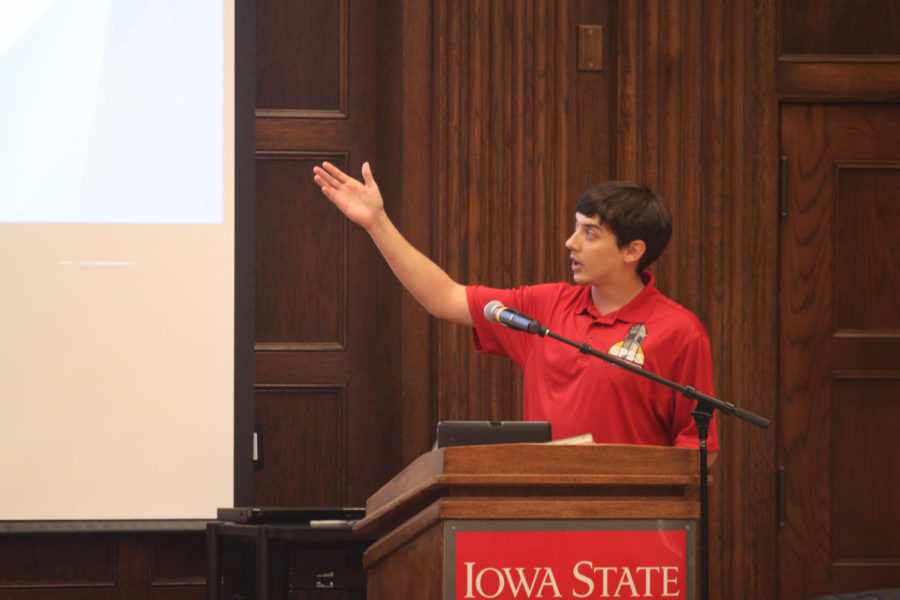GPSS explains, clarifies changes to grants
October 27, 2014
The new system of awarding Professional Advancement Grants was clarified for Graduate and Professional Student Senate senators at the monthly meeting Oct. 27.
PAGs are grants awarded by GPSS to help offset the cost of attending professional conventions, whether students are traveling to present research or only to attend the convention.
The system has been a point of contention and sometimes confusion throughout the semester. The changes to the amount of funds distributed for each award, how awards are distributed and how the application process is conducted have all been met with resistance at one point or another this year.
“If you look at our budget [these grants] are the biggest part,” said Arko Provo Mukherjee, GPSS president. “Thankfully people are looking deeper into the problems instead of rooting for certain keywords.”
Under the new process, set to go into effect Jan. 15, all awarded applicants will be reimbursed for up to $200 of their travel expenses. The old system awarded research presenters $200, but non-presenters were only reimbursed $120.
The number of grants awarded for 2015 is estimated to be 47, or nine percent fewer than 2014 under the new rules.
The system has also changed from awarding grants on a first-come, first-serve basis to a lottery system. They are now awarded on a monthly basis instead of a semester basis, and applications must now be received by the 15th day of the month prior to the month that travel occurs.
Cory Kleinheksel, chair for Professional Advancement Grants, said fairness was a major factor in deciding to amend the system.
“Before we had applications for August competing against applications for December on a first-come, first-serve basis,” Kleinheksel said. “That’s just completely unfair.”
If an applicant has never received a grant before, they are considered high priority and given first preference when grants are awarded.
The senate may consider amending the grant process again at its November meeting based on Senate and constituent feedback.
Senate Bill F14-09, allocating more than $9,000 to 14 clubs and organizations, was passed with 89 percent of the vote. No individual club or organization was given more than $800.
In other senate business, Michael Crum, vice president for economic development and industry relations, spoke to the Senate about Iowa State’s commitment to help students apply their research to entrepreneurship.
The Office of Economic Development and Industry Relations is new this year and works to help external stakeholders connect with and work with the university.
“What we’re really trying to do is the heavy lifting for everything that doesn’t involve the research and technology,” Crum said. “That’s what [graduate students] are great at.”
Crum said 200 more acres have been annexed for the expansion of the ISU Research Park.
“We are currently at about 1,500 employees out there,” Crum said. “We think in 10 to 12 years, a very conservative estimate by a consulting firm we hired, is that we could be at 6,500 to 7,000 employees out there.”
Lisa Lorenzen, director of the Office of Intellectual Property and Technology Transfer, said the organization’s mission is to commercialize technologies for the public good and encourage graduate students to think about the application of their research.
“If you’re going to be an entrepreneur you better think [your research] is great,” Lorenzen said. “If you don’t think it’s great then who else will.”
For the full story on the meeting, check the news tab of the Daily’s website.







